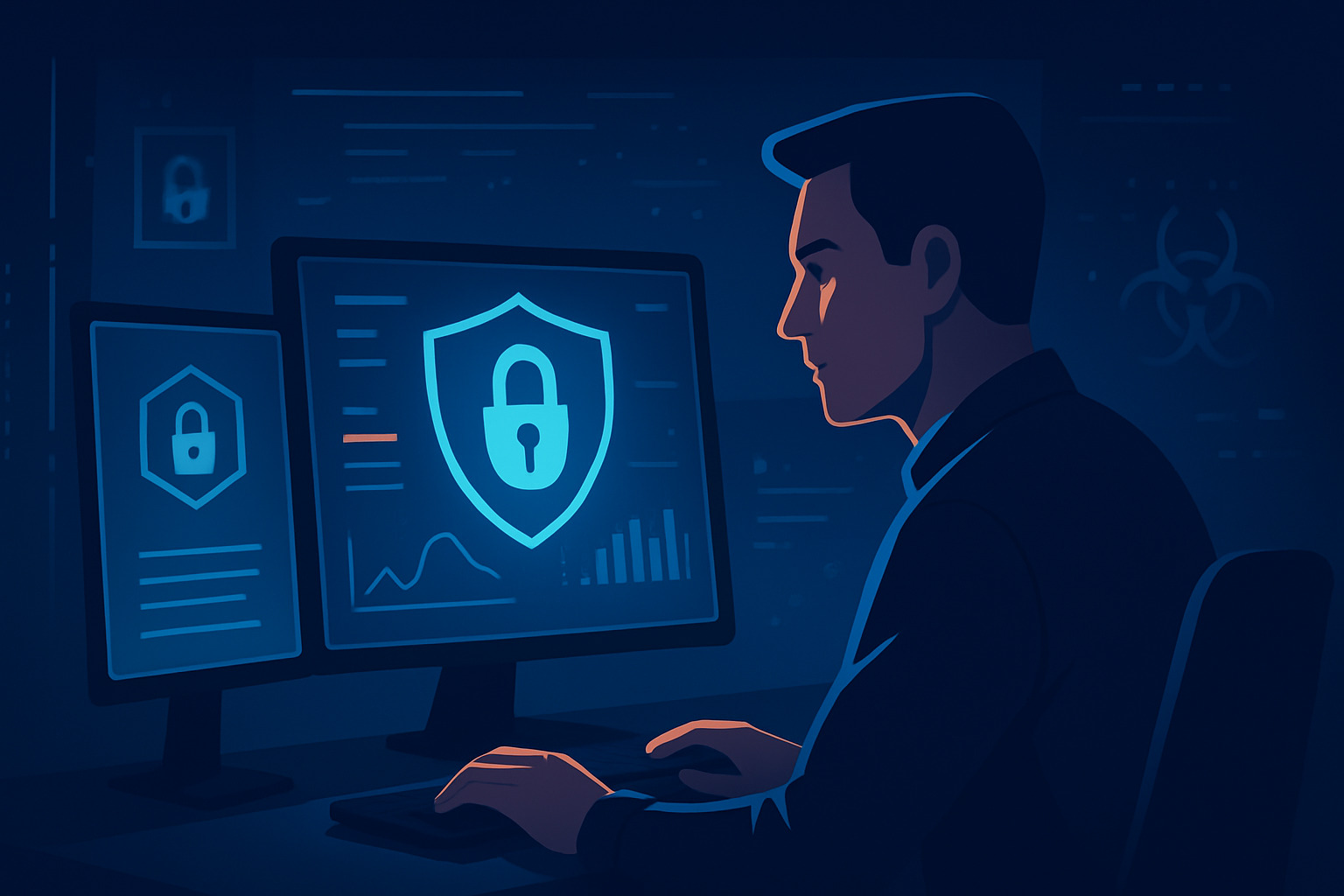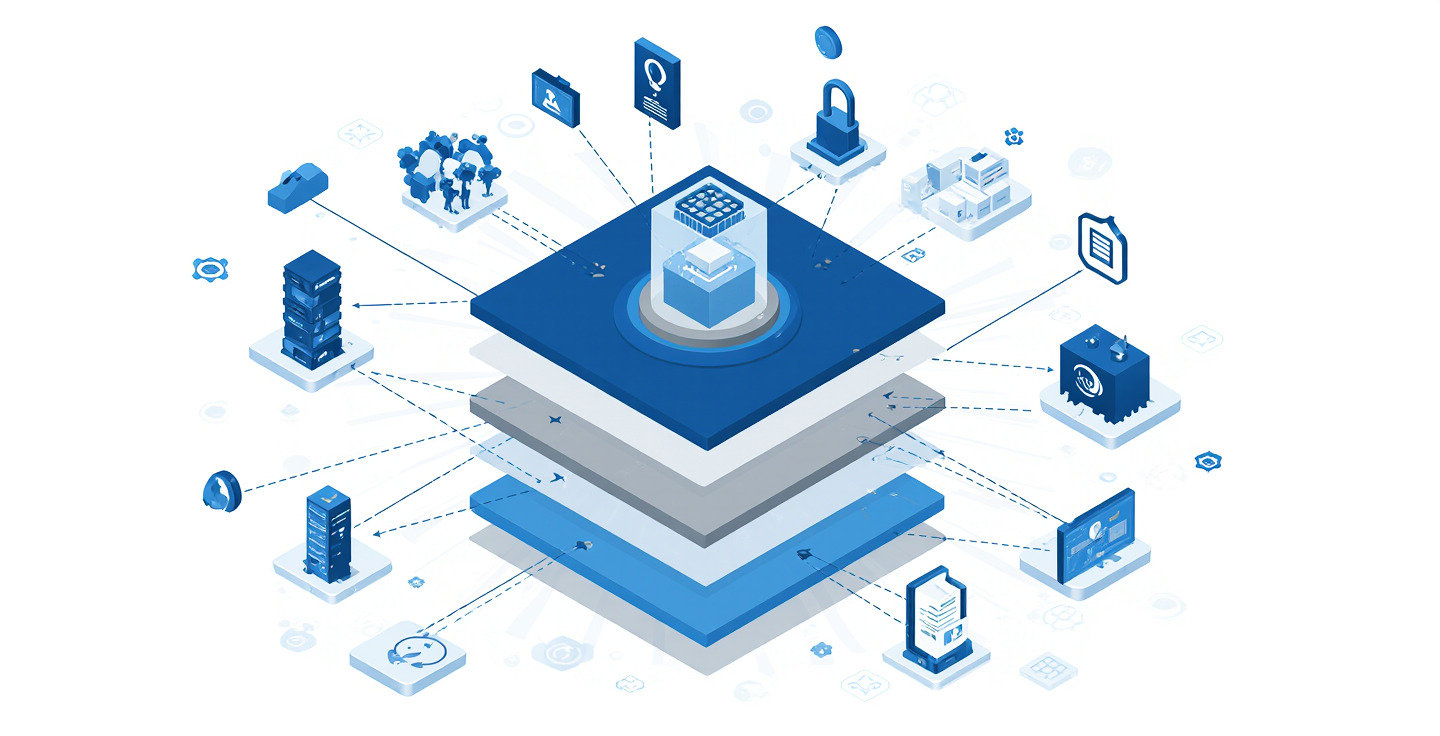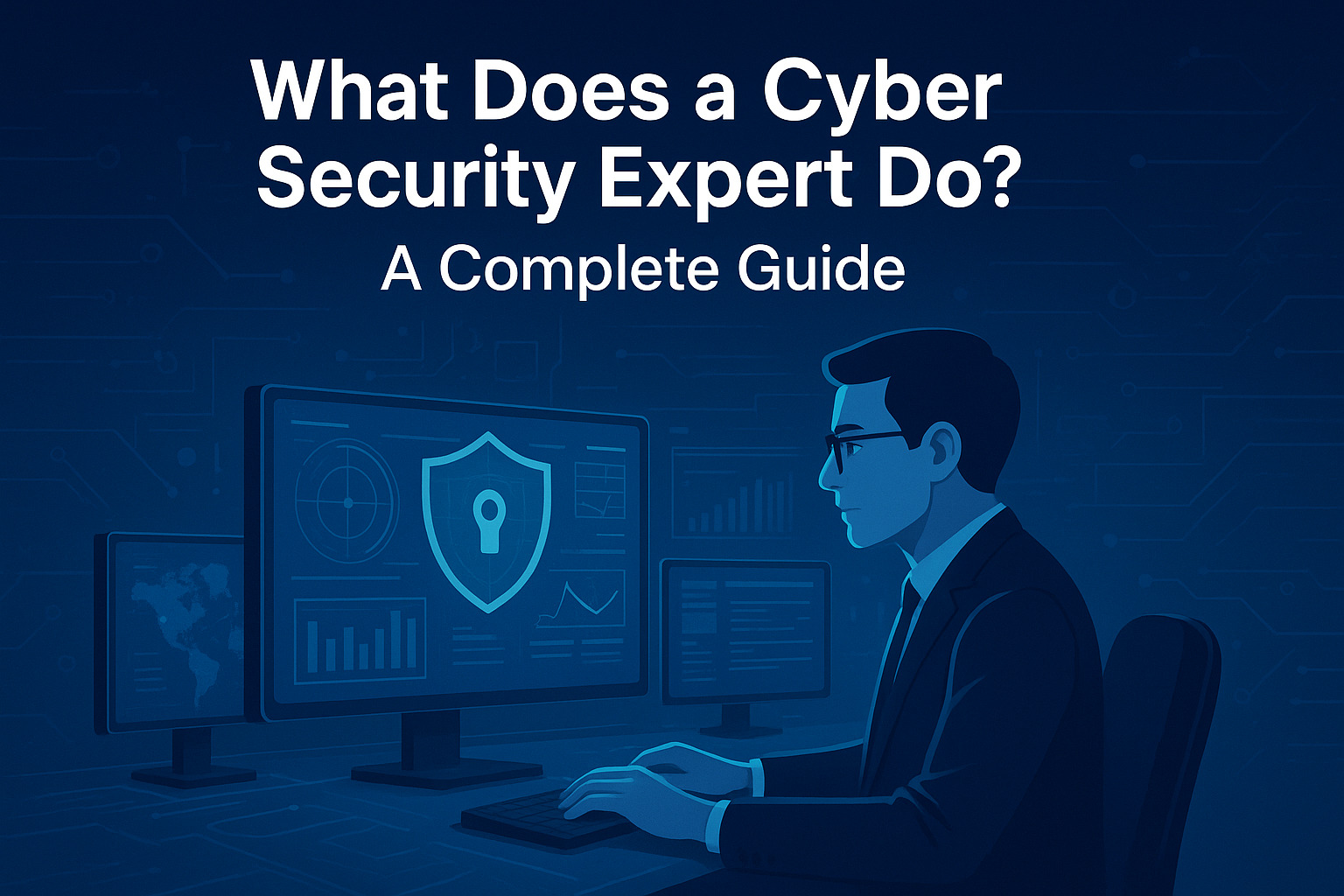Cyber Security Expert Job Description: Skills, Tools, and Certifications
- 1 min read
Explore what makes a great cyber security expert — their essential skills, tools, and certifications for protecting modern IT systems.

Introduction
As digital transformation accelerates, cyber threats have grown more sophisticated and frequent. Businesses today depend on cyber security experts to protect their systems, networks, and sensitive data against constantly evolving risks.
For companies partnering with Euro IT Sourcing, cyber security expertise has become a core component of every outsourcing engagement, from cloud infrastructure management to custom software delivery. In this post, we’ll explore the key responsibilities, must-have skills, tools, and certifications that define the modern cyber security professional.
What Does a Cyber Security Expert Do?
A cyber security expert is responsible for identifying, preventing, and responding to cyber threats targeting an organization’s digital assets. They design, implement, and monitor robust security frameworks to keep systems resilient against attacks such as phishing, malware, ransomware, and data breaches.
Core Responsibilities:
- Monitoring networks for suspicious activity
- Performing vulnerability assessments and penetration testing
- Managing security incidents and developing response strategies
- Implementing data encryption and identity management controls
- Ensuring compliance with frameworks like ISO 27001 and GDPR
- Training employees on security awareness
According to ENISA’s Threat Landscape Report, over 60% of cyber incidents are caused by human error, highlighting the need for both technological and behavioral security measures.

Essential Skills for Cyber Security Experts
To thrive in this role, a cyber security expert must blend technical acumen with analytical and communication skills. Below are the most critical competencies:
1. Technical Proficiency
- Deep understanding of network protocols (TCP/IP, DNS, HTTP)
- Knowledge of firewalls, IDS/IPS, and SIEM systems
- Hands-on experience with Linux, Windows, and cloud environments
2. Threat Analysis & Incident Response
- Ability to detect, analyze, and contain cyber incidents
- Familiarity with frameworks like MITRE ATT&CK and NIST 800-61
3. Risk Assessment & Mitigation
- Proficiency in identifying vulnerabilities and implementing mitigation plans
- Understanding of zero-trust architecture and data loss prevention
4. Soft Skills
- Critical thinking and problem-solving
- Strong documentation and communication abilities
- Collaborative mindset, especially in cross-functional teams
Common Tools Used by Cyber Security Experts
A wide range of tools empower cyber security professionals to identify, analyze, and defend against threats.
🔧 Key Tools:
- Wireshark: Network protocol analyzer for traffic inspection
- Metasploit: Framework for penetration testing and exploit development
- Splunk: SIEM tool for log analysis and incident detection
- Nmap: Network scanner for mapping and auditing systems
- Burp Suite: Web vulnerability scanner for application testing
- Kali Linux: Toolkit distribution for security testing environments
For ongoing security hygiene, integrating continuous monitoring platforms like Tenable or Rapid7 helps detect vulnerabilities in real time.
Recommended Certifications
Certifications validate an expert’s technical expertise and professional credibility. Depending on their specialization, security professionals pursue one or more of the following:
| Certification | Focus Area |
|---|---|
| CompTIA Security+ | Foundational knowledge for entry-level professionals |
| CEH (Certified Ethical Hacker) | Penetration testing and vulnerability exploitation |
| CISSP (Certified Information Systems Security Professional) | Advanced information security management |
| CISM (Certified Information Security Manager) | Risk management and governance |
| OSCP (Offensive Security Certified Professional) | Real-world ethical hacking and penetration testing |
| ISO/IEC 27001 Lead Implementer | Implementation of international security standards |
These certifications are globally recognized and often essential for senior roles like Security Architect or SOC Lead.
Metrics & Outcomes
Effective cyber security programs rely on measurable outcomes. Organizations employing certified experts typically experience:
- 40% fewer successful attacks due to improved detection capabilities
- 50% reduction in recovery time during incidents
- Enhanced compliance readiness across ISO and GDPR audits
- Increased customer trust through visible data protection standards
A strong cyber security function not only safeguards data but also protects brand reputation and operational continuity.
Key Takeaways
- Cyber security experts play a vital role in protecting businesses from digital threats.
- Core skills include network defense, risk assessment, and incident response.
- Leading tools such as Wireshark, Metasploit, and Splunk enhance threat visibility.
- Certifications like CEH, CISSP, and OSCP are highly valued across the industry.
- With the right talent, startups and enterprises alike can strengthen resilience through strategic IT partnerships.
Author: Matt Borekci Contact Us: Euro IT Sourcing

What Does a Cyber Security Expert Do? A Complete Guide
Discover what a cyber security expert does, their roles, skills, and how they protect businesses from digital threats.

How Much Does a Cyber Security Expert Earn? Salary Insights for 2025
Explore 2025 cybersecurity salary trends, including global averages, roles in demand, and how outsourcing impacts IT security hiring.